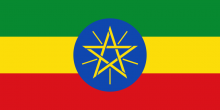Press Statement
18th September 2012
Following the announcement on 21st August 2012 of Prime Minister Meles Zenawi’s death, Ethiopia’s new leadership should recommit the State to the full respect of its population’s human rights, especially the freedoms of association, assembly and expression, the East and Horn of Africa Human Rights Defenders Project (EHAHRDP) said in a statement to the UN Human Rights Council yesterday.
The UN High Commissioner on Human Rights has expressed serious alarm about the “climate of intimidation” against human rights defenders and journalists in Ethiopia. Ambiguous provisions in the Anti-Terrorism Proclamation, adopted in 2009, have been used to silence dissenting voices. For example, on 13th July 2012, the blogger Eskinder Nega was sentenced to 18 years in prison on terrorism charges and accused of trying to spark an Arab Spring style revolt through his articles. Five journalists in exile were also sentenced in absentia to prison terms of 8 and 15 years. EHAHRDP welcomes the release of the two Swedish journalists granted pardon on 10th September 2012, but urges the government to overturn the convictions of other journalists still in prison for the expression of their views.
Since the adoption of the Charities and Societies Proclamation three years ago, independent human rights activity has almost completely ceased in Ethiopia. The law imposes heavy restrictions on fundraising by national human rights organisations – only 10% of their funding may come from external sources and permission must be granted by the Charities and Societies Agency (ChSA) for any domestic fundraising events. The Ethiopian Women Lawyers Association (EWLA) and the Human Rights Council (HRCO) have had their bank accounts frozen. The appeal of HRCO (the former Ethiopian Human Rights Council) against the freezing has been repeatedly delayed, with the latest hearing postponed from July to October 2012.
Ethiopia is standing as a candidate in the elections for membership of the UN Human Rights Council to be held in November 2012. General Assembly resolution 60/251, establishing the Council, states that Council members are to “uphold the highest standards in the promotion and protection of human rights” and “fully cooperate with the Council.” In electing members of the Council “member States shall take into account the contribution of candidates to the promotion and protection of human rights and their voluntary pledges and commitments made thereto”. In light of these provisions, EHAHRDP calls on Ethiopia to voice clear commitments for the promotion and protection of human rights. In particular, EHAHRDP urges Ethiopia to make reforms to allow for the functioning of an independent and vibrant civil society.
EHAHRDP urges Ethiopia to amend the Charities and Societies Proclamation (2009) and the Anti-terrorism Proclamation (2009) to bring them in line with international human rights standards on freedom of peaceful assembly and association, and freedom of expression. This reflects the calls made by the African Commission on Human and Peoples’ Rights in its resolution 218 in May 2012. The High Commissioner on Human Rights has offered technical assistance for the review of these two proclamations through her office – the Government of Ethiopia should accept this offer. Finally Ethiopia should issue a standing invitation to the UN Special Procedures and the Special Mechanisms of the African Commission on Human and Peoples’ Rights.
To read EHAHRDP’s full oral intervention to the UN Human Rights Council, please see:
https://defenddefenders.org/2012/09/human-rights-council-21st-session/
To read EHAHRDP and CIVICUS’s joint written statement on Ethiopia, please see:
https://defenddefenders.org/2012/09/ethiopias-new-leadership-should-respect-international-human-rights-commitments/
For more information, please contact:
Mr Hassan Shire, Executive Director on [email protected] or +41 793 375 875
Ms Rachel Nicholson, Advocacy Officer on [email protected] or +41 762 850 366

